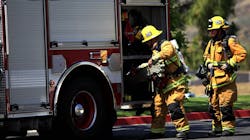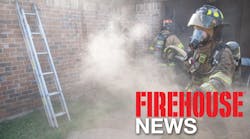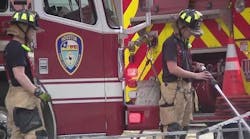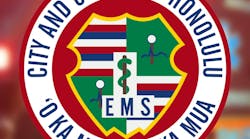Police officers and firefighters who said they felt the public did not understand the complexity of their jobs were significantly less likely to be rated as "proactive" by their supervisors, according to a study by professors at the University of Texas and University of Pittsburgh.
The study, "'I Want to Serve but the Public Does Not Understand:' Prosocial Motivation, Image Discrepancies, and Proactivity in Public Safety," surveyed 183 police officers and 238 firefighters and asked them whether they felt the public understood the challenges of their jobs.
Authors Shefali Patel, of UT's McCombs School of Business, and R. David Lebel, from the University of Pittsburgh, found that those respondents who felt a disconnect with the public were less likely to take a proactive role in their work, even when they said they view their mission as helping others.
"When proactive officers see something that's happening in a local neighborhood, they get out of the patrol car and go to help somebody even though they don't need to and nobody's actually watching them," Patil said. "But being less proactive would mean taking a less active role while on a shift and basically only doing what your boss tells you."
Improving public perception, Patil said, is an important piece of filling the gap in understanding between police and the public, and could result in officers being more likely to interact with people in positive ways.
Policing in the United States has been a subject of heated debate for years. Numerous police shootings, violent encounters and instances of officer misconduct caught on camera and posted to social media have fueled skepticism of the role of police in cities throughout the country.
At the same time, hundreds of officers have been killed in the line of duty in the last decade, whether by gunfire, vehicle accidents, duty-related illnesses or other causes. According to the Officer Down Memorial Page, which tracks law enforcement deaths nationwide, more than 1,600 officers have died in the line of duty since 2009.
"Our research is trying to show how important it is for us to take the next step to try to figure out how we can actually change the public image of law enforcement officers," she said. "It's also helping police officers believe that the public truly cares, and it's just not lip service."
Patil has conducted previous research that found that officers who take a more empathetic approach to policing suffer more than their less empathetic counterparts when they feel misunderstood.
———
©2019 Austin American-Statesman, Texas
Visit Austin American-Statesman, Texas at www.statesman.com
Distributed by Tribune Content Agency, LLC.






